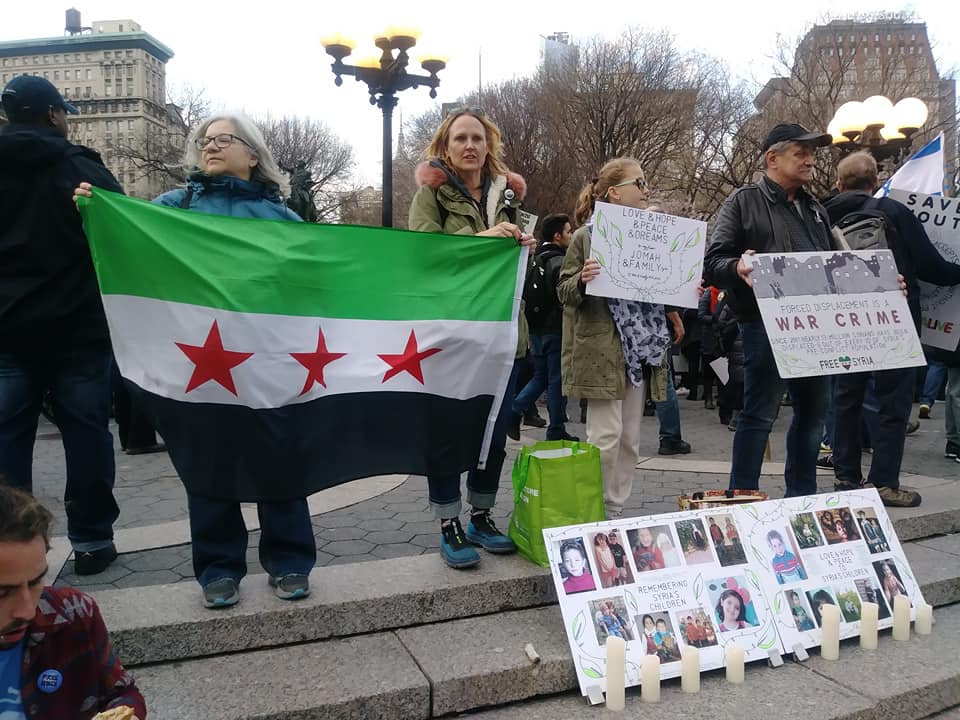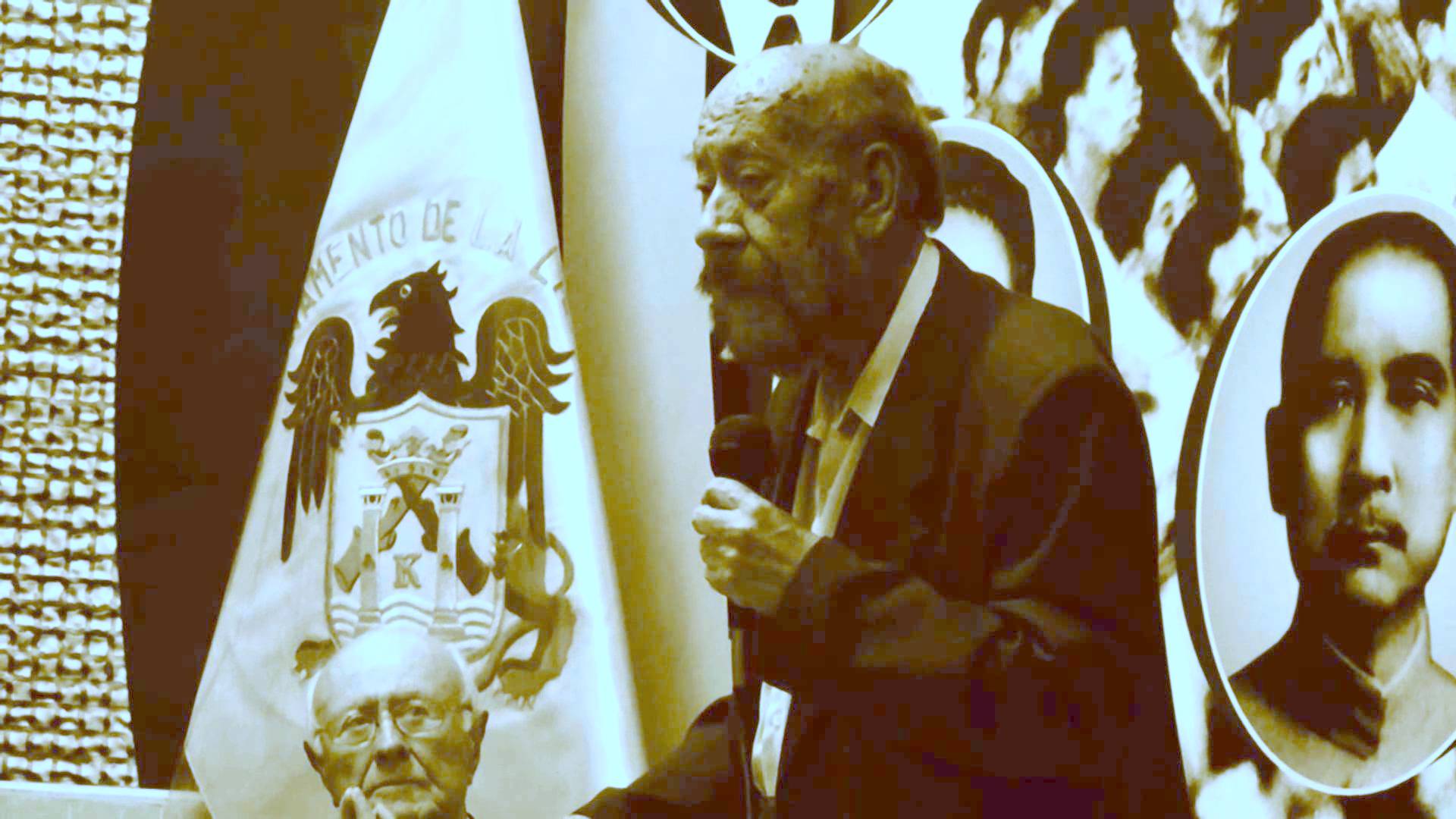Syria: new chemical attack in Eastern Ghouta
Estimates of the dead vary from 70 to 150 after the latest and worst chemical attack on the besieged enclave of Eastern Ghouta, in the Damascus suburbs. The number is likely to rise, as rescue workers are still reporting new casualties at the town of Douma, the last in the enclave that remains in rebel hands. The apparent strike by a “barrel bomb” filled with either sarin or chlorine gas targeted a building where displaced families were sheltering from the ongoing Assad regime and Russian air-raids. The victims are overwhelmingly civilians, and many are said to be children. Trump has pledged a US military response to the attack. (Image: Syria Solidarity Campaign)





